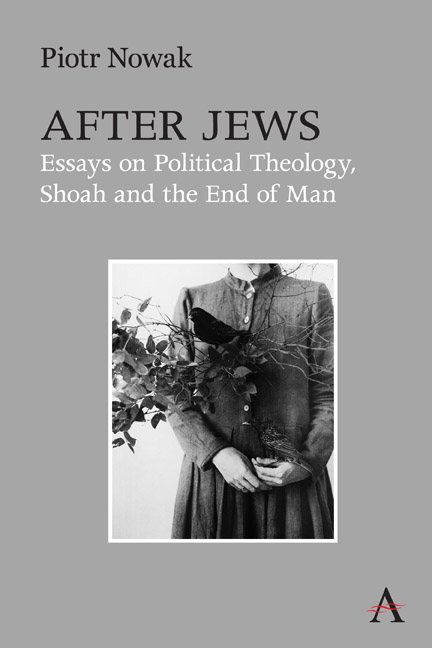Book contents
- Frontmatter
- Contents
- Preface
- Chapter 1 The Chosen Ones
- Chapter 2 The Secret of the Scapegoat
- Chapter 3 Making a Jew into a Christian
- Chapter 4 There Should Be Time No Longer
- Chapter 5 To Look Upon His Face and Yet Not Die
- Chapter 6 Ex oriente lux?
- Chapter 7 Pilloried by Necessity
- Chapter 8 German Rubble
- Chapter 9 Long Live!
- Chapter 10 The Living against the Dead
- Chapter 11 The Child of War
- Chapter 12 Plenty Coups and the End of the World
- Chapter 13 They Refugees
- Chapter 14 The Remainder of Christianity
- Bibliography
- Index of Persons
Chapter 12 - Plenty Coups and the End of the World
Published online by Cambridge University Press: 13 May 2022
- Frontmatter
- Contents
- Preface
- Chapter 1 The Chosen Ones
- Chapter 2 The Secret of the Scapegoat
- Chapter 3 Making a Jew into a Christian
- Chapter 4 There Should Be Time No Longer
- Chapter 5 To Look Upon His Face and Yet Not Die
- Chapter 6 Ex oriente lux?
- Chapter 7 Pilloried by Necessity
- Chapter 8 German Rubble
- Chapter 9 Long Live!
- Chapter 10 The Living against the Dead
- Chapter 11 The Child of War
- Chapter 12 Plenty Coups and the End of the World
- Chapter 13 They Refugees
- Chapter 14 The Remainder of Christianity
- Bibliography
- Index of Persons
Summary
By dreaming, man trains himself for life.
Friedrich NietzscheJonathan Lear is a philosopher, professor at the Committee on Social Thought at the University of Chicago, and a practicing psychoanalyst. That last information seems of paramount importance when it comes to his Radical Hope that I am going to discuss here, for the book responds to three fundamental questions: (1) how to live in a world that has suddenly lost all meaning; (2) is hope still possible in such a world; and, if so, (3) in what language should one try to express it? I would say that Lear's Radical Hope is a kind of first-aid textbook after the collapse of the world we know, or at least this the impression I get from it.
But Lear addresses an even more basic and general question: what happens to the people whose culture vanishes unexpectedly, when everything they were used to becomes annihilated? To illustrate this, he chooses the example of North American Indian tribe—the Crows. At the turn of the twentieth century, most Indian tribes were confronted by two technical inventions, the power of which they could not oppose: American Winchester and “firewater.” The former killed three-quarters of the Indians; the latter depraved the remaining rest. Lear's research grounds on an oral account of the Crow leader, which was written down by Frank B. Linderman. Plenty Coups (which is how the chief was called) expressed the thought that served as a starting point for Lear's story: “But when the buffalo went away the hearts of my people fell to the ground, and they could not lift them up again. After this nothing happened.” What does it mean that nothing happened?—asks Lear. After all, Plenty Coup was an exceptionally long-lived and vigorous person. Having retired as a warrior, he took to farming, made a success of it, received awards and, what is more, his share in the reconciliation between the “savages” and the US government was much appreciated, acknowledged and honored. So in what sense “nothing happened”? In order to understand this, one has to go back a 9-year-old Plenty Coups's dream-visions that permanently shaped his mind.
- Type
- Chapter
- Information
- After JewsEssays on Political Theology, Shoah and the End of Man, pp. 165 - 172Publisher: Anthem PressPrint publication year: 2022



